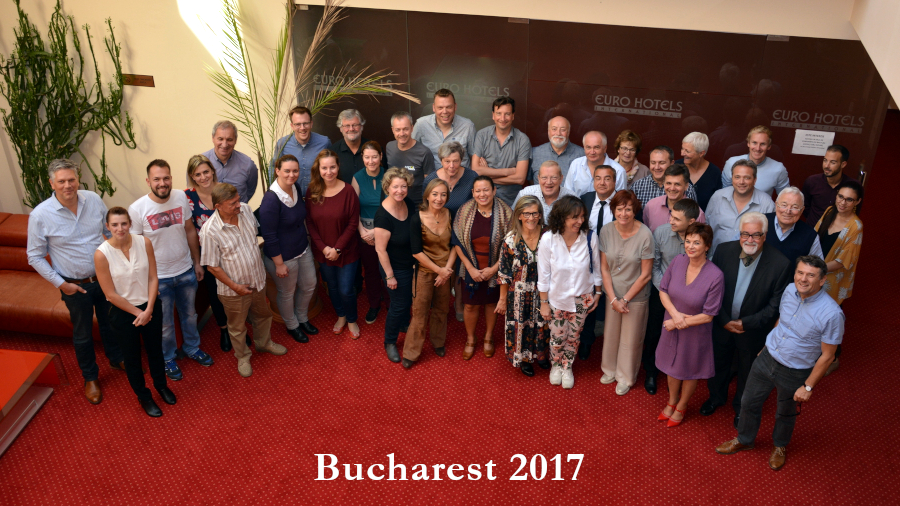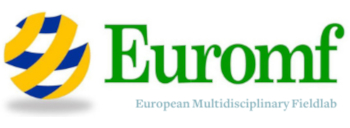 Euromf vzw initially originated from an exchange programme organised by Belgian and Eastern European labourers organisations. Several initiatives emerged, aimed at the development of labourer’s campaigns and the exchange of knowledge and information.
Euromf vzw initially originated from an exchange programme organised by Belgian and Eastern European labourers organisations. Several initiatives emerged, aimed at the development of labourer’s campaigns and the exchange of knowledge and information.
For practical reasons Euromf vzw was re-established in 2010 by the labourers movements of the provinces of Antwerp, Limburg and Flemish Brabant. The activities were continued by organising a number of seminars which for several years focused on the considerable social inequality in society, the working poor and the ways to address these issues. From 2015 onwards we continue being engaged, from various lines of approach, on the consequences of labour migration.
The organisation will take initiatives and/or support initiatives that lead to the development of a strong social mid field (civil society) in Central and Eastern Europe in order to play a leading role in the social dialogue. To achieve this goal the organisation itself, or in cooperation with other organisations, can develop projects and set up educational initiatives.
Euromf particularly aims at the socio-economic domains, and equally at social-cultural education, community work, regional development; the health care, health insurance and welfare sectors; cooperatives and social economy for and by employees. The organisation can collaborate with initiatives, or take initiatives, that support and/or coordinate networks.
Euromf aims at contributing to democracy, social justice, fair sustainability, welfare and well-being in Western, Central and Eastern Europe.
Board of Directors:
President: Bart Gaublomme
Secretary: Carien Neven
Members: Wouter Van Dyck, Tine Vanderaspoilden, Peter Wouters
Seminar on op 4-5-6th october 2023 - Genk (Belgium)
CONTENT
In the autumn of 2019, the Von Der Leyen committee presented the Green Deal. The objective of this is ‘transform the EU into a fair and prosperous society, with a modern, resource-efficient and competitive economy where there are no net emissions of greenhouse gases in 2050 and where economic growth is decoupled from resource use’. The corona crisis has also once again demonstrated that we will have to relate to our planet in a different way.
Workers' organizations can play an important role in the realization of the Deal. Care must always be taken to ensure that achieving objectives is accompanied by social justice. But it is also important that workers' organizations are aware of the content and importance of this. After all, the Green Deal wants to focus on 'protect the health and well-being of citizens from environment-related risks and impacts. At the same time, this transition must be just and inclusive. These are also core values that put workers' organizations first.
In order to achieve a circular economy, certain jobs will disappear and others will be created. It is important that decent work is put first in these new jobs.
Instead of a purely theoretical approach, we have chosen – for the organization of this seminar - to visit some good examples of social and just transition. So that we could show very well that there are also good examples of sustainable transition and that transition should not always be accompanied by job losses. the Limburg former mining region is a very suitable location then to show seminar participants from the rest of Europe that transition can be sustainable. After all, the transition of the Limburg mining region has generated numerous new activities and associated employment in recent decades.
The most important aspects of the seminar were therefore the visits to the former mining sites where now - years later - completely different activities have been developed. The transition from 3 former mining sites to
- A nature reserve and National Park with high tourist value and the creation of related jobs, called Nationaal Park Hoge Kempen
- A site with a lot of cultural presence and players (cultural centre, cinema, college of audiovisual arts and techniques, …), called C-Mine
- A site where many innovative companies were attracted including the local employment agencies and trainers or guides to work, called Thor-Park
Local policy members and other people directly involved in the reconversion accompagnied us during the seminar:
- Patrick Carnotensis, former head of study department of ACV miners
- Paul Boutsen, director of Het Vervolg/COALFACE
- Ilse Olaerts, employee of Nationaal Park Hoge Kempen
- Raf Terwingen, mayor of Maasmechelen
- Wim Dries, mayor of Genk
- Anniek Nagels, council member of the city of Genk
The discussions during the seminar focused very much on what options there are after the cessation of a former industrial activity, what vision you need, which partners and which elements in the policy you can activate. The presence of the local policy makers had high added value.
PARTICIPANTS
The seminar resulted in 36 participants in total, mainly from the following countries: Belgium, Germany, Ukraine, Czech Republic, Italy, Spain, Romania.
SEMINAR RESULTS
The seminar was evaluated very positively by the participants. Some key results:
- Very active; a lot of information and interesting views on (1) the working phase, (2) the reconversion and (3) the current situation.
- The presence and private guiding tour by the mayor of Genk was highly appreciated
- Good to have a view of the process with participation of the civil society and trade unions
- Multisectoral approach is good and provides a better diversification in job creation
- Multistakeholder approach is important;
- It was a great opportunity to visit all the sites
- Important to take nature and culture into account during the making of reconversion plans
The following recommendations were generated during the seminar:
- In the case of reconversion of old industrial or mining sites, involve all partners: (local) government, employer and trade unions
- When thinking about reconversion, keep an eye on the future: new activities and technologies can offer a lot of potential for employment in the near future
- Successful reconversion is intense and mainly process-driven. Continuously make sure everyone is on board


